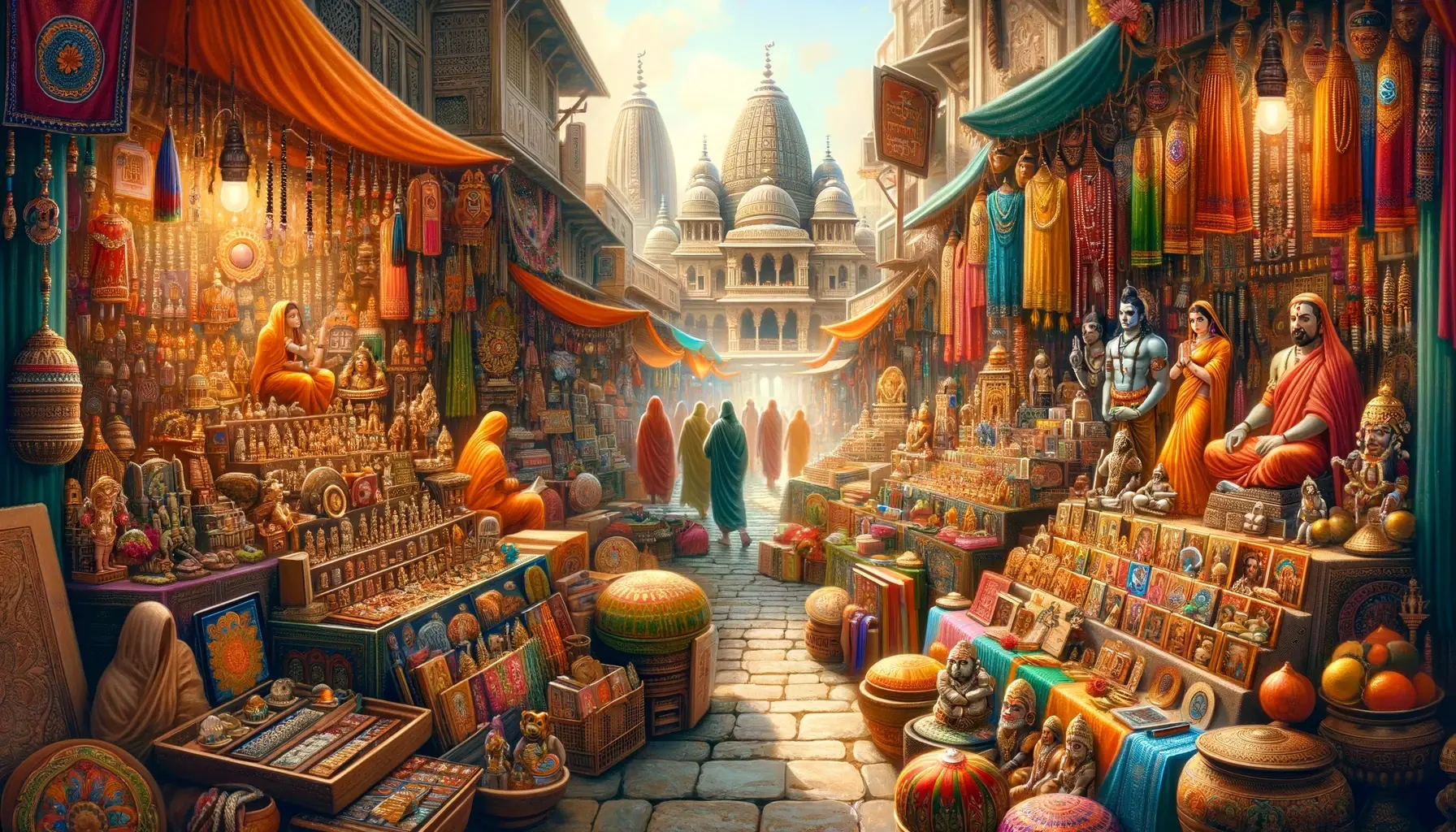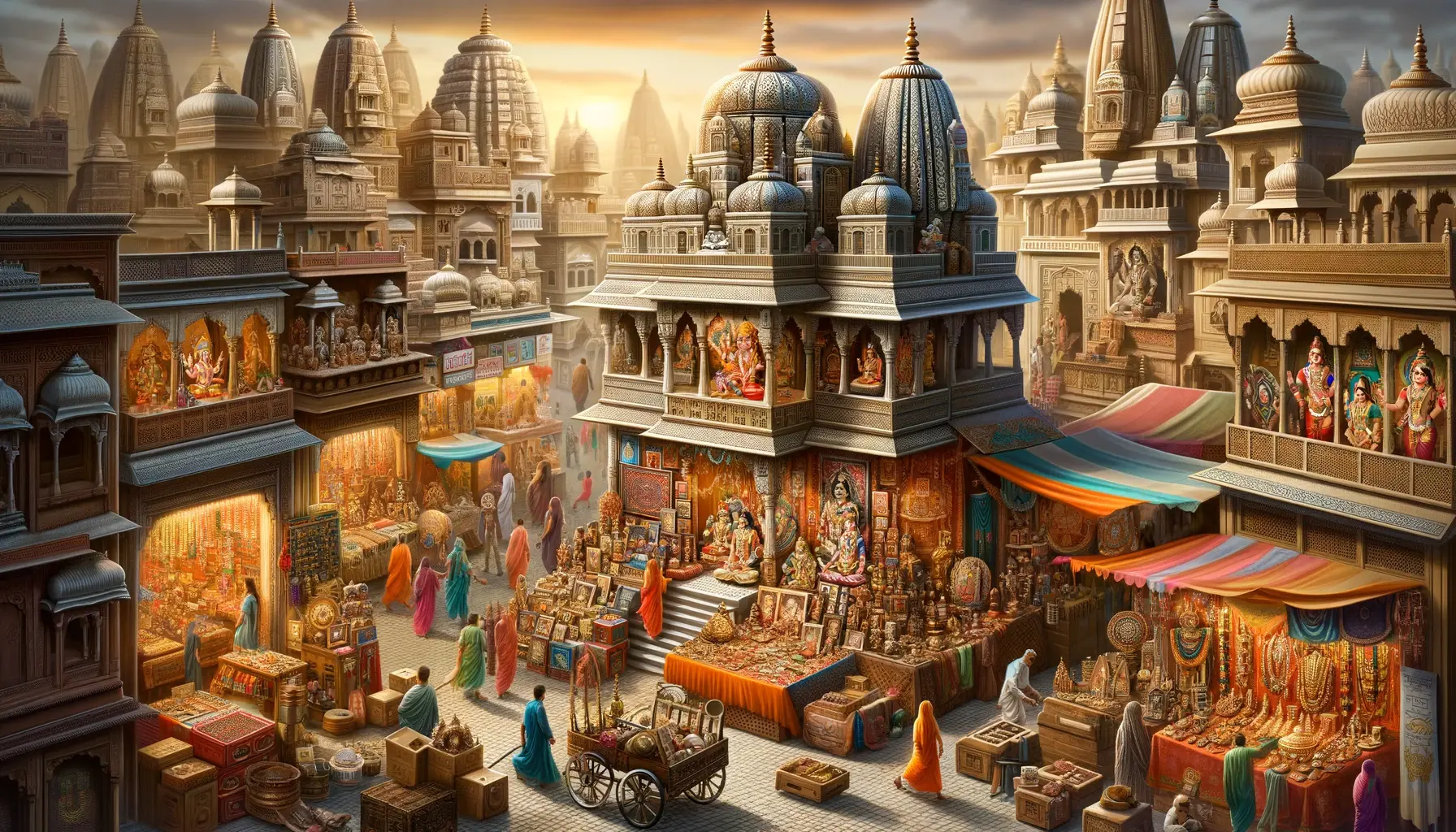Table of Contents
- Introduction to Traditional Clothing in Ayodhya
- Popular Traditional Attires
- Best Shopping Destinations
- Tips for Buying Authentic Traditional Wear
- Custom Tailoring and Fittings
- Festive and Wedding Attire
- Preserving Traditional Techniques
- FAQs on Traditional Clothing Shopping in Ayodhya
1. Introduction to Traditional Clothing in Ayodhya
Ayodhya, with its profound cultural roots, is a splendid place to explore traditional Indian clothing. The city’s attire reflects its historical and spiritual significance, offering an array of traditional wear that ranges from daily outfits to elaborate ceremonial garb. Shopping for traditional clothing here is not just about the purchase—it’s an experience of the region’s culture and tradition.
- Ayodhya is an ideal place to shop for traditional Indian clothing.
- Clothing reflects the city’s cultural and spiritual heritage.
- Popular Traditional Attires In Ayodhya, the saree is a quintessential piece for women, with materials ranging from cotton for daily wear to silk for special occasions. For men, dhotis and kurtas are the traditional choices, often made from khadi, a hand-spun and hand-woven cloth. Each piece of clothing often tells a story through its fabric, weave, and design.
- Sarees and dhotis are traditional clothing staples in Ayodhya.
- Materials range from daily wear cotton to special occasion silk.
3. Best Shopping Destinations
The markets of Ayodhya, such as ‘Choti Chawni’ and ‘Naya Ghat’, are renowned for their traditional clothing shops. These markets offer a diverse selection, from ready-to-wear garments to high-end boutiques that sell custom-designed pieces.
- ‘Choti Chawni’ and ‘Naya Ghat’ are notable markets for traditional clothing.
- Selection ranges from ready-to-wear to custom-designed pieces.
4. Tips for Buying Authentic Traditional Wear
To ensure authenticity when purchasing traditional wear, look for handloom marks or certifications from the Silk Mark Organization of India for silk products. It’s also recommended to learn about the different types of regional weaves and embroideries to appreciate the craftsmanship and make an informed choice.
- Look for handloom marks or silk certifications for authenticity.
- Learn about regional weaves and embroideries to appreciate craftsmanship.
5. Custom Tailoring and Fittings
Ayodhya offers excellent tailoring services, where traditional outfits can be custom-fitted to individual preferences. Many shops provide in-house tailoring services, ensuring that the attire not only fits perfectly but also matches the wearer’s style.
- Custom tailoring services are widely available in Ayodhya.
- In-house tailoring ensures a perfect fit and personalized style.
6. Festive and Wedding Attire
For festive occasions and weddings, traditional clothing in Ayodhya takes on a grandeur with intricate embroideries and embellishments. Shops specializing in wedding attire can be found throughout the city, offering a plethora of options for brides, grooms, and wedding parties.
- Traditional clothing for festive occasions features intricate embroideries.
- Specialized wedding attire shops offer a plethora of options.
7. Preserving Traditional Techniques
Many shops in Ayodhya are committed to preserving traditional clothing techniques. They support local weavers and artisans, ensuring the survival of age-old practices like block printing, zari work, and hand embroidery.
- Shops in Ayodhya support local weavers and artisans.
- Traditional techniques like block printing and zari work are preserved.
8. FAQs on Traditional Clothing Shopping in Ayodhya
- What is the best time to shop for traditional clothing in Ayodhya?
- Early mornings or late afternoons are ideal to avoid the heat and crowds.
2. Can I find modern interpretations of traditional clothing in Ayodhya?
- Yes, several boutiques offer modern designs inspired by traditional styles.
- Are there options for renting traditional attire in Ayodhya?
- Yes, there are services available for renting traditional wear, especially for weddings and festivals.
- How do I care for traditional clothing purchased in Ayodhya?
- Care instructions vary; always ask the retailer for specific guidelines, especially for delicate fabrics and embroideries.
- What should I expect to pay for high-quality traditional clothing?
- Prices can range significantly based on the fabric, design, and intricacy of work. It’s advisable to compare prices and negotiate.
- Is it possible to get a saree or dhoti customized within a day?
- Some tailors offer expedited services, but this may come with an additional cost.
- Are traditional clothing items suitable for all seasons?
- Lighter fabrics like cotton are suitable for summer, while silks and heavier materials are better for cooler weather.
- Do shops in Ayodhya accept international credit cards?
- Larger stores and boutiques may accept them, but smaller shops may not. It’s best to have cash as a backup.
Shopping for traditional clothing in Ayodhya is a delightful experience that offers a glimpse into the city’s rich tapestry of history and tradition. Whether you’re seeking an outfit for a special occasion or simply want to add a piece of Ayodhya’s heritage to your wardrobe, the city’s markets and boutiques cater to a wide array of tastes and preferences.


